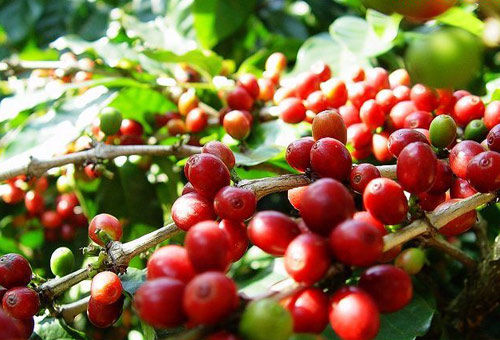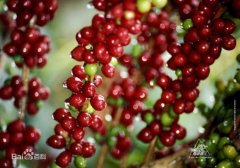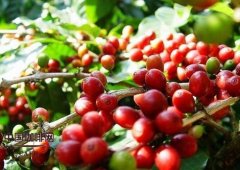Why is coffee bitter? How to make coffee less bitter?
Coffee is best known for its bitterness, but caffeine actually accounts for at most 10 percent. This can be seen from the fact that roasted beans contain caffeine concentrations that are not affected by roasting, and decaffeinated coffee also has bitter tastes.
So where does the remaining 90% of bitterness come from?
One of the sources of coffee bitterness is brown pigment.
Brown pigments can be classified according to molecular size, and the larger the molecule, the more bitter it is. In the case of coffee, deep roasting increases brown pigment, followed by larger (more bitter) pigments. When you cook deep-baked beans in daily life, you will find that the bitterness is stronger and the taste is stronger.
In fact, Arabica and Robusta species differ in bitterness intensity and taste. This is also due to the amount of brown pigment and molecular size caused by different. Robusta species have lower oligosaccharide content than Arabica species, do not caramelize, and easily produce larger molecular pigments, so even if lightly baked, they often taste bitter.
Another source of bitterness is the cyclization of seven diamino acids produced when amino acids and proteins are heated. This is a combination of two amino acids. Different combinations will cause different bitterness intensity. In addition to coffee, cocoa, dark beer and other parts of the bitter is also composed of this substance.
So, is it impossible to control the intensity and intensity of bitterness? Of course you can. Bitterness can be changed by changing the type of coffee bean, roasting degree, roasting method and extraction method.

Important Notice :
前街咖啡 FrontStreet Coffee has moved to new addredd:
FrontStreet Coffee Address: 315,Donghua East Road,GuangZhou
Tel:020 38364473
- Prev

A comprehensive understanding of the types of Starbucks coffee
In 1971, three famous baristas, Jerry, Gordon and Giff, founded Starbucks Starbucks in Seattle, USA. They only sold heavy-baked coffee brewed by using pressure pots, not drinks and desserts, and soon became popular all over the United States. The emergence of Starbucks changed the situation of instant coffee unifying the United States, which had a far-reaching impact at that time. In 1974, Starbucks Marketing Manager Howard
- Next

Coffee Grinding knowledge the relationship between Coffee and Grinding degree
One of the key factors in making a good cup of coffee is grinding. Proper grinding can fully extract the organic substances that produce flavor in coffee, and improper grinding may lead to excessive or insufficient extraction of coffee. Either way, the coffee will not taste good enough and may even have an unpleasant taste. Coffee can be fully extracted only when it is properly ground.
Related
- Beginners will see the "Coffee pull flower" guide!
- What is the difference between ice blog purified milk and ordinary milk coffee?
- Why is the Philippines the largest producer of crops in Liberia?
- For coffee extraction, should the fine powder be retained?
- How does extracted espresso fill pressed powder? How much strength does it take to press the powder?
- How to make jasmine cold extract coffee? Is the jasmine + latte good?
- Will this little toy really make the coffee taste better? How does Lily Drip affect coffee extraction?
- Will the action of slapping the filter cup also affect coffee extraction?
- What's the difference between powder-to-water ratio and powder-to-liquid ratio?
- What is the Ethiopian local species? What does it have to do with Heirloom native species?

